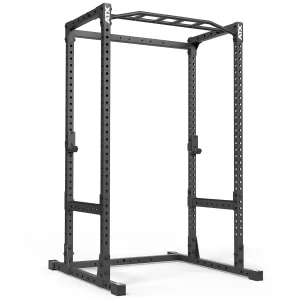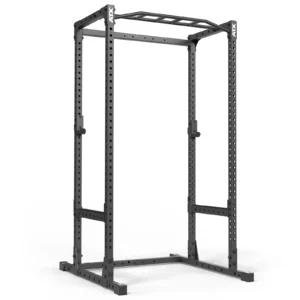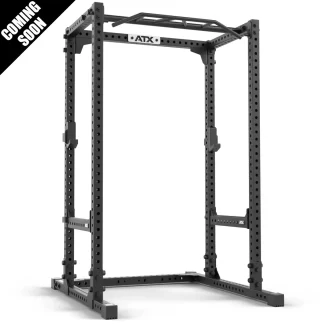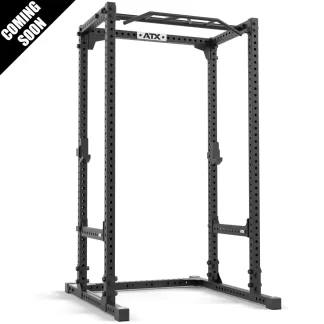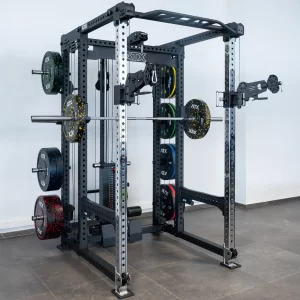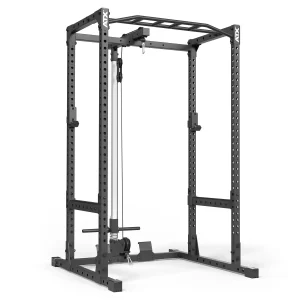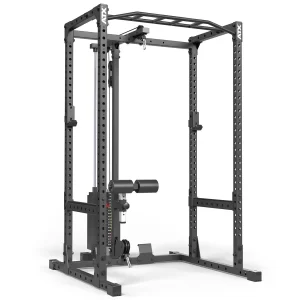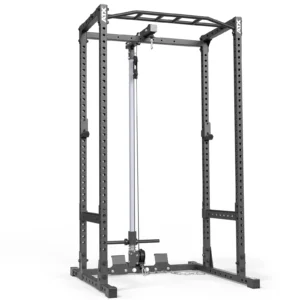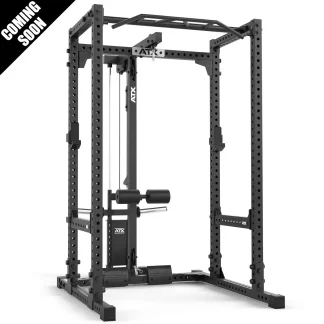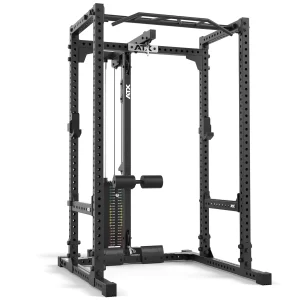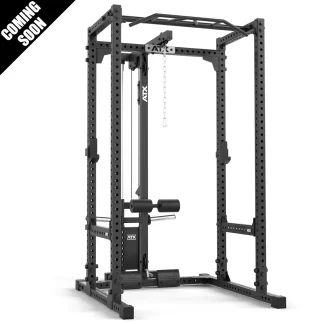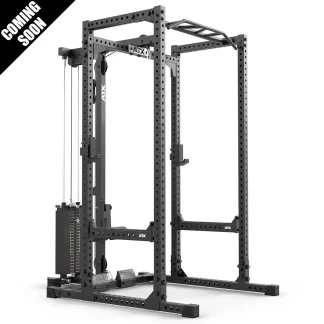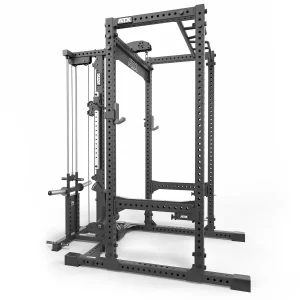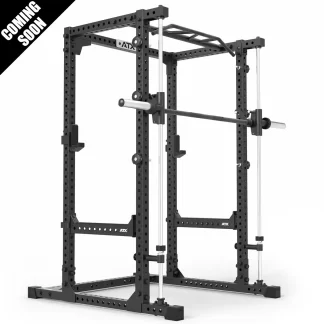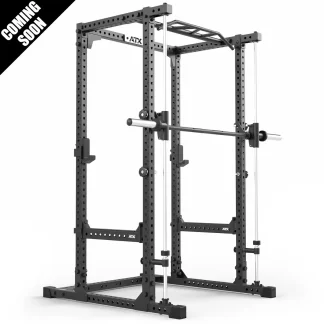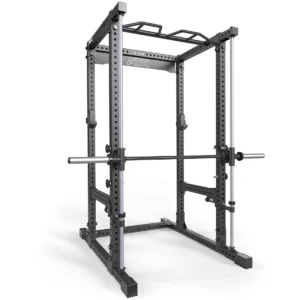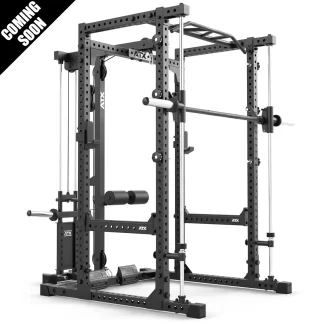“You simply can’t go wrong with a Power Rack”
A variety of options offered by our quality power rack and squat cages are well known to the experienced weight trainer or powerlifter. For those who are new to weightlifting, bodybuilding, or strength training, the flexibility, variety, and size of power racks make them a must-have in any home gym. We also provide a full range of power rack attachments and accessories such as dip handles, chin-up bars, and resistance band attachments to name a few.
ATX® Commercial Power Racks
Commercial power cages and squat racks have been designed to be the ultimate commercial gym equipment. They have been built not only to withstand extremely heavyweights but also to handle the stress of these weights during intense training.
This serious free-standing equipment with heavy weights is clearly for professional athletes and is commonly used by fitness clubs and gyms. It offers a simple and safe way of handling large weights on a bar, making it the ideal equipment for a serious weight trainer.
So How Do They Work?
After all my years of working in this industry and hearing about all the latest fads and crazes, I can tell you that the basics of weight training have remained the same. If you want to get results, the most effective way is to work at the compound movements – bench press, squats, dead-lifts, pull-ups, dips. A power rack lets you hit these exercises hard, with complete safety.
Defined by its four uprights (which you lift inside of), a power rack is sometimes used interchangeably with terms such as “power cage”, “bench press rack”, “lifting cage” or “weight cage”. Safety is provided by the adjustable spotter bars that bridge the front and rear uprights. They allow you a full range of motion for bench press but will stop you from being crushed by the bar in the event you can’t complete a repetition. This setup is exactly like the setups you’ll see in all the high-performance gyms.
What About the Safety Features?
The spotters stop you from buckling under a heavyweight bar during squats. In addition to this, the uprights will stop the bar from bouncing around your gym if you have to dump the weight off your back. So they are a perfect fit for both beginners all the way through to the advanced weight trainer.
As you can imagine, these racks need to be strong, tough, and reliable. Even a relatively lightweight squat, if dumped off your shoulders, will generate a fair amount of force. Poor quality power racks boast about their safety features, but when called upon, they fail under the pressure. That is why we don’t sell cheap and nasty gym racks for lifting. We only specialise in high-quality brands who have a proven pedigree in the industry.
Can They Be Upgraded or Extended?
Power racks have evolved over the years from being a very basic piece of equipment to being a complete gym. Many of our best power racks have optional lat pull-down attachments. Essentially this is just a high and low pulley system which bolts straight back up to the rear of the rack. This will add a lot of variety to your weight training with quality exercises like the following:
- Lat pull-down
- Seated row
- Bicep curl
- Tricep press-down
Our power racks also feature chin up and dip options. Two extremely powerful exercises in their own right, but these options can also be utilised for a whole lot of other exercises like leg raises, assisted chin ups, inverted rows, push-ups and many more. Combined with the compound movements discussed earlier, you can see that the list of exercises and variations is really only limited by your imagination!
How Much Room Will I Need?
Best of all, these complete power rack packages take up only a relatively small footprint considering the number and quality of exercises they offer. A 3m x 3m space would be very comfortable, and some people can even fit them in gyms that are a lot smaller. They are ideal for personal trainers as they effectively replace a room full of gym equipment. We even have a commercial power rack with a pull-down option.
So if your quest in researching gym equipment is going round in circles, the power rack is always the option to fall back on – or should I say the one you won’t fall back on when squatting heavy! It allows you to do all the exercises that are required to build strength and muscle. Plus there are loads of variety to keep your training interesting. The only people I advise to steer clear of power racks are those who don’t like training with barbells.

